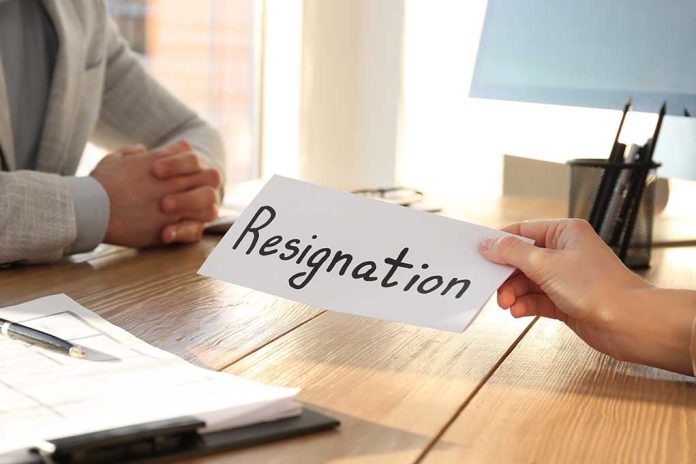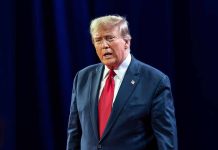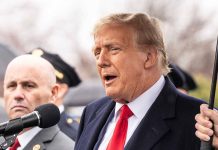
Political turmoil in Canada heightens as demands for Prime Minister Justin Trudeau’s resignation grow stronger following Finance Minister Chrystia Freeland’s decision to step down.
At a Glance
- Chrystia Freeland resigned as Finance Minister, leading to tensions within Trudeau’s government.
- Freeland’s departure has intensified calls for Trudeau’s resignation from both opposition leaders and within his party.
- The national deficit reaches an alarming $61.9 billion, amid further economic concerns.
- Trudeau’s approval ratings drop as internal and external pressures escalate.
Freeland’s Departure Sparks Political Crisis
Finance Minister Chrystia Freeland’s resignation from Prime Minister Justin Trudeau’s cabinet marks a significant event amid Canada’s current political crisis. Freeland cited critical differences with Trudeau over fiscal strategies, notably concerning issues deemed as “wasteful political schemes,” as her driving reason for stepping down. Her decision coincided with her scheduled presentation to Parliament on the nation’s finances, revealing an alarming $61.9 billion deficit.
This resignation not only exposes the growing discord within Trudeau’s government but also forms part of a broader reaction involving opposition leaders and party members. Conservative Leader Pierre Poilievre openly criticized the government’s disarray, and New Democratic Party leader Jagmeet Singh echoed these sentiments, urging Trudeau to resign.
Today, I am calling on Justin Trudeau to resign.
Liberals are fighting themselves – when Canadians need a Prime Minister who will fight for them. pic.twitter.com/1zebsMovqh
— Jagmeet Singh (@theJagmeetSingh) December 16, 2024
Trudeau’s Leadership Questioned
Trudeau faces increasing pressure not only from political rivals but from within his own Liberal Party. The special caucus meeting held by Liberal MPs revealed internal calls for new leadership. Reports suggest up to 60 Liberal MPs plan to sign a letter urging for his resignation. Speculations regarding a potential cabinet reshuffle have escalated as discussions on dealing with the national deficit continue.
“The government of Canada itself is spiralling out of control, right before our eyes, and at the very worst time” – Pierre Poilievre
Compounding these issues are heightened tensions with the U.S., notably in light of Donald Trump’s election victory and subsequent tariff threats. Freeland’s resignation letter emphasized the importance of maintaining prudent fiscal policies amidst these challenges, aligning with broader concerns over the government’s approach to international relations and economic health.
🚨BREAKING: Trudeau may be forced to officially resign in the next few days.
There's significant buzz on platforms like X and other social media platforms, such as Facebook about the possibility of Canadian Prime Minister Justin Trudeau resigning, coupled with reports and… pic.twitter.com/NRoTSHKrox
— Human Rights Platform (@Humanrights256) December 17, 2024
Looking Ahead: Canada’s Political Future
Trudeau’s approval ratings have plummeted to 33%, largely attributed to his handling of economic issues and relations with the U.S. Amidst these tumults, the Liberal Party focuses on preparing for potential elections by October next year. However, if the New Democratic Party withdraws support, an earlier election might be called for.
“We are calling for Justin Trudeau’s resignation.” – Jagmeet Singh
Trudeau’s decision-making in the coming days will be crucial in determining Canada’s political trajectory. His ability to manage fiscal responsibilities, enhance international relations, and address internal party tensions can reshape national confidence. The call for Trudeau’s departure underscores a critical moment in Canadian politics, steering towards a need for a stable and effective government path ahead.
Sources
1. Trudeau taps LeBlanc as finance minister after Freeland resigns














